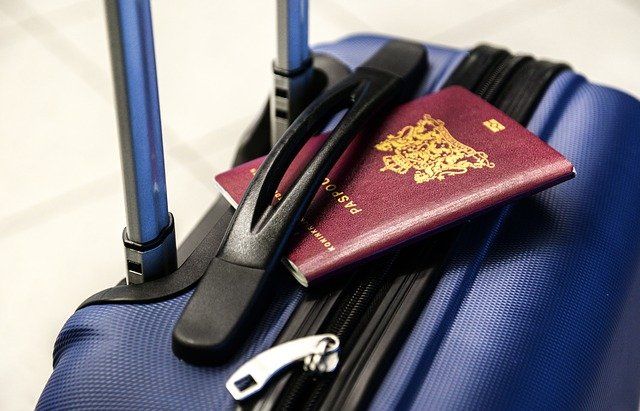
Throughout the pandemic year that consisted of multiple lockdowns and restrictions on anything fun, there is one thing on people minds: when are we going on our next holiday? Another is, when can I next meet my international business partners?
But before you book your ticket and pack your bags, there may be one other factor to consider: a digital vaccine passport.
The European Union (EU) is to propose a digital vaccine passport that will provide proof of inoculation, test results of those who have not received the vaccine, and information on previous covid history.
“The Digital Green Pass should facilitate Europeans‘ lives,” Ursala von der Leyen, the President of the European Union, tweeted. “The aim is to gradually enable them to move safely in the European Union or abroad — for work or tourism.”
The digital vaccine passport was proposed by Greece and other EU countries that rely on tourism as a huge part of their country. Greece’s hope is to boost travel and tourism in its current sluggish economy.
The reaction to this passport has been mixed. Although the new passport will definitely increase tourism for some, others are worried about discrimination.
The EU’s target is to vaccinate only 70% of the 446 million residents by September, meaning a huge chunk of the population will go through the summer not vaccinated. Although some countries do require other vaccinations for travel, such as yellow fever, a major concern with the coronavirus is that vaccines are not yet available by demand in comparison to yellow fever. Critics argue it would be unfair to restrict travel rights for those still waiting to get vaccinated or those that cannot be vaccinated for other medical reasons.
Another issue stems from the risk that vaccinated people could still pass coronavirus if they contract the virus. Gloria Guevara, CEO of the World Travel and Tourism Council, said that future travel is not just about the vaccination, but a comprehensive plan such as testing, mask-wearing, enhanced health and hygiene protocols as well as digital passes for specific journey.
Here at Polestar, we’ve been working remotely to keep in accordance with U.K. government guidelines. However, when the country does open up, we’re excited to come back into the office and see the team.
This idea of a “digital vaccine passport” is one that will affect Polestar, but more in terms of international travel for business, although we all would love the idea of a holiday too!
When Charlie and Richard visit our partners around the globe, and attend conferences internationally, a digital passport could be a possibility for them. Although this would be great for Polestar, I fear the idea of a digital passport may create a further gap between developed and developing countries.
Countries such as the U.K and the United States have been fortunate enough to obtain millions of vaccines and have started to inoculate a majority of their populations. The European Union, Canada and other countries now have supply issues obtaining more doses of the vaccine.
But there is definitely a pattern we are going to see with covid that we always see in other viruses and diseases: the wealthier countries will use up all resources first and then “donate” the doses they do not need to countries who cannot purchase or get the supply they need.
For example, areas such as Africa are going to fall behind in vaccinating their populations due to the price and supply of the vaccines. Many African nations are too poor to have pre-ordered vaccines from pharmaceutical companies, while others have been accused of being too disorganized to get a vaccination program going. Almost all African nations are dependent on the WHO-backed Covax, a global initiative to ensure equitable access to doses. That initiative may take months to deliver vaccines and is unlikely to cater for everyone.
According to the Global Health Innovation Center at Duke University of North Carolina, high-income counties, which have a population of 1 billion, have secured about 4.2 billion doses. These doses account for 74% of total government orders. In contrast, middle-income and low-income countries have only secured only 675 million doses.
Tedros Adhanom Ghebreyesus (Director General of WHO) commented on this issue “It’s not right that younger, healthier adults in rich countries are vaccinated before health workers and older people in poorer countries,” he said.
While the U.S has said it plans to vaccinate all adults by May and the U.K plans to vaccinates all adults by September, in other parts of the world it could take as long as three years to inoculate their populations. The most important factor for all of us is that this will prolong the pandemic for years to come. Prolonging the pandemic will allow the coronavirus to mutate into further strains, which could allow some vaccines to become ineffective.
A digital vaccine passport is a great idea if you are in a country that will be able to give you a vaccine by this year. You will be able to go on holidays, concerts, weddings, and in our case, travel internationally for business. But for those who will not be able to get a vaccine, this passport will only further the discrimination for those people who come from developing countries, hampering their economies still further, whilst leaving the rich countries at risk of those deadly new variants developing coming back with our international travellers. It is in our interest to ensure that the world is vaccinated.
So alongside counties creating vaccine passports let us also focus on what we can do to help others get the privileges, such as a vaccine. Without a global effort, we will all have to deal with this pandemic for years to come.
“For Belgium, there is no question of linking vaccination to the freedom of movement around Europe,” Sophie Wilmès, Belgium’s foreign minister, tweeted: “Respect for the principle of non-discrimination is more fundamental than ever since vaccination is not compulsory and access to the vaccine is not yet generalised.”